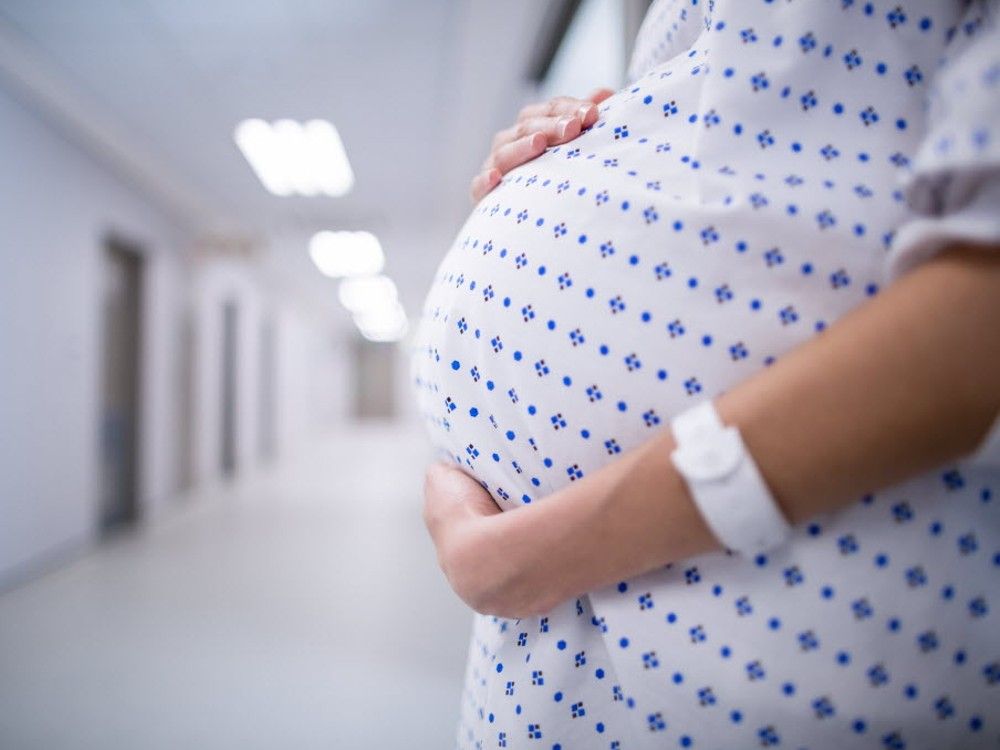Activist Suggests Womb Transplants To Enable Transgender Women To Give Birth

Table of Contents
The Current Landscape of Reproductive Rights for Transgender Women
Transgender women currently face significant barriers to accessing reproductive healthcare. While gender-affirming care, including hormone therapy, is crucial for their well-being, it doesn't address the desire for biological motherhood. The options available are often limited, expensive, and fraught with challenges.
- Limited access to fertility treatments: Many fertility clinics don't have policies or expertise in supporting transgender women seeking pregnancy.
- High cost and limited availability of surrogacy: Surrogacy is a costly and complex process, with legal and ethical hurdles that can be particularly challenging for transgender individuals.
- Social and legal barriers to adoption: Adoption processes can be discriminatory, and transgender women may face additional scrutiny and bias.
- Lack of understanding and support from healthcare providers: Many healthcare providers lack sufficient training and understanding of the unique needs of transgender women seeking reproductive healthcare. This lack of knowledge can lead to misdiagnosis, miscommunication and inadequate support.
Womb Transplant Technology: Current Status and Future Potential
Uterus transplantation, while still a relatively new field, has shown promising results in cisgender women. The procedure involves surgically implanting a healthy uterus from a deceased or living donor into a recipient. However, significant challenges remain.
- Success rates of uterus transplants in cisgender women: While success rates are improving, they are not yet consistently high, and the procedure is complex and requires significant resources.
- Challenges in performing womb transplants: The surgery is technically demanding, requiring specialized surgical expertise and a multidisciplinary team. Immunosuppression is also necessary, increasing the risk of complications.
- Ethical considerations surrounding organ donation: The ethical implications of using donated uteruses, particularly from living donors, require careful consideration of the risks and benefits for both donors and recipients.
- Future research directions and potential technological advancements: Ongoing research focuses on improving surgical techniques, reducing the risk of complications, and exploring alternative sources of uteruses, potentially including those grown in a lab.
Ethical and Societal Implications of Womb Transplants for Transgender Women
The prospect of womb transplants for transgender women raises profound ethical questions. Concerns exist regarding potential exploitation of donors, unequal access based on socioeconomic status, and the societal acceptance of transgender motherhood.
- Concerns regarding donor exploitation: Ensuring equitable compensation and informed consent from donors is paramount to prevent exploitation.
- Potential for unequal access based on socioeconomic factors: The high cost of womb transplantation could exacerbate existing health disparities, making it accessible only to a privileged few.
- Societal acceptance and stigma surrounding transgender motherhood: Social stigma and prejudice may hinder the acceptance and integration of transgender women who choose to utilize this technology.
- Long-term physical and psychological effects on recipients: The long-term physical and psychological impacts of the procedure and pregnancy on transgender women require careful monitoring and research.
The Activist's Argument and its Significance
The activist's proposal champions the right of transgender women to experience pregnancy and childbirth, arguing that denying access to this technology is a form of reproductive injustice. This advocacy aims to:
- Summary of the activist's main arguments: The activist likely focuses on bodily autonomy, reproductive freedom, and the right to equal access to healthcare.
- Potential impact on transgender healthcare access: The proposal could significantly broaden access to reproductive healthcare for transgender women, shifting the paradigm of what is considered possible.
- Influence on public discourse and policy debates: The proposal will inevitably spark public discourse, forcing society to confront issues of gender identity, reproductive rights, and technological advancements in healthcare.
- Comparison to other forms of transgender reproductive options: The activist’s proposal will be weighed against current alternatives such as surrogacy and adoption.
Conclusion
The possibility of womb transplants for transgender women presents a complex tapestry of medical, ethical, and societal considerations. While offering a potentially revolutionary pathway to motherhood for some, it also highlights existing inequalities and raises critical questions about access, donor protection, and the broader societal acceptance of transgender parenthood. The activist's proposal is a crucial step in this conversation, pushing boundaries and advocating for a more inclusive approach to reproductive rights.
The future of womb transplants and transgender motherhood requires continued discussion and research. Learn more and contribute to the conversation about womb transplants for transgender women today! Understanding the nuances of this complex issue is vital to ensuring equitable access to healthcare and respecting the reproductive rights of all individuals, regardless of gender identity.

Featured Posts
-
 Top 10 Film Noir Films A Binge Worthy List
May 10, 2025
Top 10 Film Noir Films A Binge Worthy List
May 10, 2025 -
 Roman Fate Season 2 A Potential Replacement Show To Avoid Spoilers
May 10, 2025
Roman Fate Season 2 A Potential Replacement Show To Avoid Spoilers
May 10, 2025 -
 Nottingham Survivors Recount Experiences After Devastating Attacks
May 10, 2025
Nottingham Survivors Recount Experiences After Devastating Attacks
May 10, 2025 -
 2025 Stephen King Film Adaptations High Hopes Despite The Monkeys Uncertain Future
May 10, 2025
2025 Stephen King Film Adaptations High Hopes Despite The Monkeys Uncertain Future
May 10, 2025 -
 Justice Sought For Family Victim Of Racist Violence
May 10, 2025
Justice Sought For Family Victim Of Racist Violence
May 10, 2025
